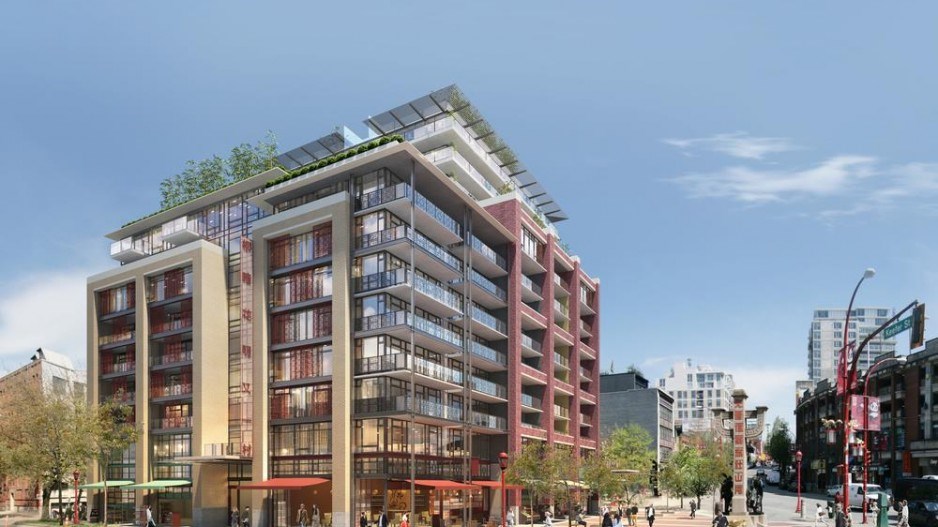The City of Vancouver’s Development Permit Board has rejected a controversial plan for a 111-unit condo tower in Vancouver’s Chinatown, the first such rejection in 11 years.
In a 2-1 vote on November 6, Gil Kelley, the city’s chief planner, and chief engineer Jerry Dobrovolny voted to reject the proposal, with assistant city manager Paul Mochrie voting in favour.
Beedie Living’s plan called for a nine-storey building with 100% market housing and ground-level community space at 105 Keefer Street.
The proposal had faced stiff opposition from some local residents, including the Chinatown Action Group (CAC).
"We're over the moon that the [permit board] finally put a stop to Beedie's profit-driven development and, instead, protect low-income residents," said CAC spokesman Nat Lowe in a statement.
The CAC wants the site to be used for 100% social rental housing with free public meeting space.
The development community, however, sees the decision as worrisome.
Anne McMullin, president and CEO of the Urban Development Institute (UDI), said, “UDI is disappointed by the City of Vancouver’s surprise decision to reject a residential building project that had met the municipality’s regulations and policies.”
She added that the Beedie proposal was revised five times over the course of four years and the final plan had received the support of city staff and the city’s Urban Design Panel, met existing zoning regulations and conformed to the official community plan.
“This is the first time since 2006 that the Development Permit Board has rejected an application. We, the industry, see no policy reason for why this was rejected,” McMullin said. “This project denial sends a negative chill throughout the industry.
“[It] creates significant uncertainty because our members don’t know if they can rely on zoning, urban area plans, advice of city staff or recommendations of the Urban Design Panel.”


.png;w=120;h=80;mode=crop)

